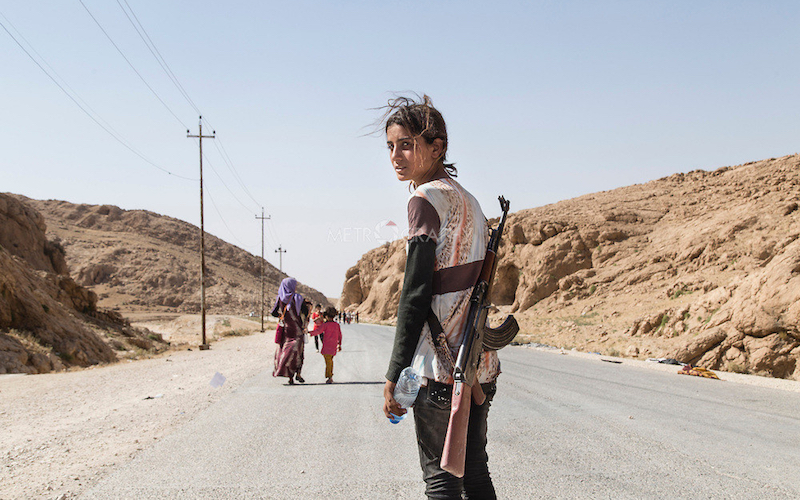
Lebanon: Safeguarding National Interests
The Syrian civil war continues to claim more lives everyday, destablizing the Middle East even further. The United Nations has reported that countless civilians have fled Syria over the past five years. The UNHCR, the leading refugee organization in the Middle East, predicts that by December 2015 there will be an estimated of 1 million Syrian refugees sheltered along the borders of Jordan and Turkey. The UNHCR reports that there are over 1.5 million refugees sheltered in Lebanon, and it is estimated that the numbers will rise to 1.8 million by the fall of 2015. The total Lebanese population is less than 6 Million, which clearly means that the refugees consists of 25% of the total population.
“The uncontrolled fire”: the Syrian Civil War
Syria and Iraq have been gripped in internal civil war for the past five years. According to the United Nations, over 200,000 people have lost their lives just in Syria. More than 3 million refugees have been displaced internally due to the conflict. Assad’s regime will never be able to retain control in the region and the UN struggles to protect its personnel on the ground.
There is no doubt that the Lebanese armed groups have played an important role in the conflict. An anonymous source confirmed to me that over 500 Hezbollah fighters have been killed in Syria so far, which, in total, accounts 10% of the forces involved in the conflict. Many areas of Lebanon are left unguarded, creating an opportunity for terrorists to retaliate as security was supplied by Hezbollah for years.
The situation in Lebanon is grave. The lead agency, UNHCR, is collapsing due to the increased numbers of refugees. The Lebanese government has started recruiting local NGO’s in a desperate attempt to save the deteriorated refugee crisis.
A report submitted by UNHCR to the special committee of the UNSC states that the budget for UNHCR in Lebanon has increased from $13.7 million USD, to $556.8 million USD in 2015, as a result of the Syrian civil war.
Some reports on the casualties of the Hezbollah fighters during the conflict are as follows:
- 11 Killed and 50 injured in Tripoli (Al Jazeera, 2014)
- 14 Lebanese soldiers killed in Arsal (Star, 2014)
- 27 Killed in Tripoli (Albawaba, 2014)
Sectarianism
Since its independence in 1943, Lebanon has reflected a sectarian divide. Basically there are three main religious groups: Muslims, Christians and Druze. The ruling division of the power agreement states that the president is supposed to be a Maronite, the Speaker of the House a Shiite Muslim, the prime minister a Sunni Muslim and the Deputy Speaker of the House a Christian. There are other minorities like the Druze who are not mentioned in the agreement.
The compromise among these groups has proved to be successful but in 1985 an assassination plot was uncovered against the the leader of the phalanges, Pierre Gamayel. Angered by this incident, phalanges massacred 27 Palestinians who were travelling in a bus. The 1970’s and 80’s witnessed a brutal civil war in Lebanon which left over 100,000 dead and 900,000 displaced.
Sectarianism has been the root catalyst for spreading violence in Lebanon. Hezbollah receives financial aid from Iran, which is an active supporter of the Assad regime, and fighting against the Sunni supported Islamic jihad organizations like the Islamic State and Al Qaeda makes Lebanon vulnerable as it is left unguarded. As a result many ethnic tribes have picked up weapons to defend their communities. One such example is that of Sunni anti-Hezbollah fighters who have been taking advantage of the organizations weaknesses and have retriggered the sectarian divide.
“The state actor at large”: Israel
The Israeli accession of Southern Lebanon, right after the Galilie operation of 1982, brought forth several guerrilla groups like Hezbollah which focussed on driving the Israeli Defence Forces (IDF) out of Lebanon, and freeing Jerusalem from oppression of Western communities. In 2000, Israel withdrew from Lebanon which was a victory for Hezbollah.
An Israeli source told me recently that Hezbollah had around 150 rockets aimed at Israel. Israel’s Mossad monitors Hezbollah operatives on the ground.
As the West fights ISIS, Lebanon is left unguarded. Without a timly response this will result in military failure. A balanced militaty response is urgently needed.

